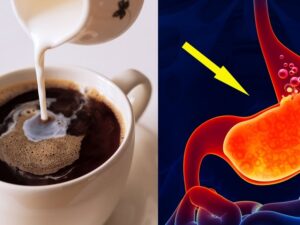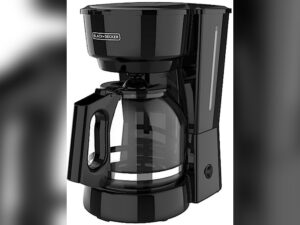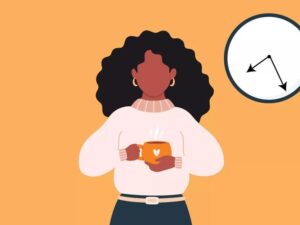Have you ever wondered why so many people reach for a cup of coffee the moment they wake up? It’s not just a habit or a comforting ritual—there’s real science behind why coffee is the go-to morning drink worldwide.
Your body’s natural rhythms, energy levels, and even your long-term health can be affected by when and how you enjoy that first sip. Keep reading to discover why drinking coffee in the morning isn’t just popular—it might be one of the smartest ways to start your day.
Morning Energy Boost
Many people rely on coffee to jumpstart their day. The morning energy boost coffee provides helps fight sleepiness. It wakes up the brain and body quickly. Understanding how coffee affects energy reveals why it is so popular in the morning.
Caffeine And Alertness
Caffeine is the main ingredient in coffee that boosts alertness. It stimulates the central nervous system. This makes you feel more awake and focused. Caffeine blocks certain chemicals in the brain that cause tiredness. Many drink coffee to feel sharp and ready for the day.
Cortisol’s Role
Cortisol is a natural hormone linked to alertness. It peaks in the morning after waking up. Cortisol helps clear sleep-inducing chemicals from the brain. Drinking coffee too early may interfere with this natural process. It is best to let cortisol work before caffeine takes effect.
Adenosine Blocking
Adenosine is a chemical that builds up during the day and causes drowsiness. Caffeine blocks adenosine receptors in the brain. This stops the feeling of tiredness and increases energy. Blocking adenosine helps coffee drinkers stay alert longer. This is why coffee is so effective in the morning.

Credit: sleepyowl.co
Timing And Sleep
Timing plays a crucial role in how coffee affects our sleep and energy levels. Drinking coffee at the right time can boost alertness without disturbing rest. Understanding the connection between coffee, sleep, and the body’s natural rhythms helps explain why morning coffee is so popular.
Why Morning Coffee Is Better
Our bodies produce cortisol, a natural hormone, in the morning. This hormone wakes us up and makes us alert. Drinking coffee at this time works with cortisol, enhancing alertness. Coffee later in the day can clash with our natural rhythm and cause rest problems.
Avoiding Sleep Disruption
Caffeine stays in the body for several hours. Drinking coffee too late can delay falling asleep. Morning coffee reduces the chance of caffeine affecting nighttime rest. Good sleep supports better health and energy for the next day.
Delaying Coffee Benefits
Waiting to drink coffee until mid-morning lets cortisol peak first. This timing makes caffeine more effective. It helps avoid a quick energy drop later in the day. Delayed coffee can lead to steadier alertness and less afternoon tiredness.
Avoiding The Afternoon Crash
The afternoon crash is a common energy dip many people face. It often occurs after lunch and can make concentration difficult. Drinking coffee in the morning helps many avoid this slump. The timing of coffee intake plays a key role in managing energy levels throughout the day.
How Timing Affects Energy Levels
Caffeine blocks adenosine, a chemical that makes you feel sleepy. Early in the morning, adenosine levels are low. Drinking coffee too soon can cause a quick energy boost, followed by a sharp drop later. Waiting to drink coffee allows natural hormones to work first. This timing helps maintain steady energy without sudden crashes.
Sustained Alertness
Delaying coffee intake lets cortisol, the body’s natural alertness hormone, peak first. Cortisol clears adenosine from the brain and keeps you awake. After cortisol levels drop, caffeine then blocks the rising adenosine. This combination results in longer-lasting alertness. The afternoon energy dip becomes less severe or disappears.
Hormonal Balance
Cortisol follows a daily rhythm, peaking in the morning. Drinking coffee during this peak can interfere with its natural effect. When caffeine is timed right, it supports this hormonal balance. Proper timing improves energy regulation and reduces dependence on caffeine. It also helps maintain better sleep patterns at night.

Credit: coffeeroastco.com
Health Benefits Of Morning Coffee
Morning coffee is more than a daily habit. It offers several health benefits that help many start their day right. Drinking coffee early can boost energy and support heart health. It also links to longer life and better circulation. Understanding these benefits explains why so many prefer coffee in the morning.
Reduced Risk Of Heart Disease
Coffee contains antioxidants that protect the heart. Studies show regular coffee drinkers often have a lower risk of heart disease. These antioxidants reduce inflammation and improve blood vessel function. This helps keep the heart strong and healthy over time.
Lower Mortality Rates
Research finds coffee drinkers tend to live longer. Drinking coffee regularly may lower the chance of death from several causes. This includes heart disease, stroke, and some cancers. The protective effects come from coffee’s nutrients and natural compounds.
Improved Cardiovascular Health
Coffee helps improve blood flow and lowers blood pressure. It supports the lining of blood vessels, making them more flexible. This reduces the risk of artery stiffness and heart attacks. Better cardiovascular health means a healthier, more active life.
Personalizing Your Coffee Routine
Personalizing your coffee routine helps you enjoy coffee in the best way for your body. Not everyone reacts the same to caffeine. Some feel energized quickly, while others may feel jittery or anxious. Understanding your own body’s response can improve how coffee fits into your daily life.
Adjusting your coffee habits based on your lifestyle and needs creates a better experience. Timing, amount, and type of coffee all matter. This approach leads to sustained energy and better sleep.
Listening To Your Body
Pay attention to how coffee affects you. Notice if it makes you alert or restless. Some people feel a quick energy boost, others feel a crash later. Your body’s signals guide you to the right coffee amount and timing.
Track how you feel after coffee for several days. Adjust the strength or size of your coffee based on your mood and energy. Avoid forcing yourself to drink coffee if it causes discomfort.
Considering Lifestyle Needs
Match your coffee routine with your daily activities. Early morning workouts might need a quick caffeine boost. Jobs requiring focus can benefit from steady energy throughout the morning.
Busy days might call for stronger coffee or multiple cups. Relaxing weekends may suit lighter coffee or none at all. Your routine should support your schedule, not disrupt it.
When To Adjust Timing
Consider changing your coffee timing if you feel tired later in the day. Drinking coffee too early can cause an afternoon energy dip. Waiting until mid-morning lets your natural hormones work first.
If coffee affects your sleep, try having it earlier or reduce the amount. Notice if shifting your coffee time improves rest and energy. Small changes in timing can have a big impact on how you feel.
Science Behind Coffee Habits
Coffee drinking in the morning is a global habit. People start their day with a cup for many reasons. Science helps explain why this routine feels natural and effective. Understanding the science behind coffee habits reveals how caffeine affects the body and mind.
Many studies show how coffee impacts energy, focus, and mood. The timing of coffee intake also plays a key role in its benefits. This section explores research findings, expert opinions, and common myths about morning coffee.
Research Findings
Scientific studies show caffeine blocks a brain chemical called adenosine. Adenosine makes us feel tired. When caffeine blocks it, alertness rises quickly. This effect helps people wake up and stay focused.
Research also reveals cortisol, a natural hormone, peaks shortly after waking. Cortisol boosts energy and alertness naturally. Drinking coffee too early may reduce caffeine’s impact or cause a midday energy crash.
Delaying coffee for about an hour after waking lets cortisol work first. Then caffeine helps sustain energy longer. This timing may improve mood and reduce afternoon tiredness.
Expert Opinions
Health experts agree coffee can improve mental performance when used wisely. They advise avoiding coffee right after waking. Instead, wait until natural alertness dips slightly.
Experts emphasize listening to your body. Some people feel best with coffee immediately. Others benefit from delaying their first cup. The key is balancing caffeine intake with your daily routine.
Experts warn that too much coffee or late-day consumption can harm sleep quality. Proper timing supports better rest and overall health.
Common Myths
One myth says coffee fully wakes you up instantly. In reality, caffeine takes about 15 minutes to act and peaks around 30-60 minutes. It does not replace natural waking processes.
Another myth claims coffee causes dehydration. Studies show moderate coffee intake actually contributes to hydration. It’s a mild diuretic but not enough to cause dehydration.
Some believe morning coffee causes dependence. While caffeine can be addictive, moderate use is generally safe. The habit forms more from routine and pleasure than physical need.

Credit: abcnews.go.com
Frequently Asked Questions
Why Do Most People Drink Coffee In The Morning?
Most people drink coffee in the morning to boost alertness, improve focus, and start the day energized. Caffeine blocks adenosine, reducing tiredness. Drinking coffee early supports better sleep patterns and helps avoid afternoon energy crashes. This habit enhances productivity and overall well-being throughout the day.
Why Wait 90 Minutes To Drink Coffee In The Morning?
Wait 90 minutes to let cortisol peak naturally, boosting alertness. Drinking coffee later prevents energy crashes and improves sleep quality.
Do People Who Drink Coffee In The Morning Live Longer?
Drinking coffee in the morning may lower the risk of death and support heart health. Studies link it to longer life.
What Is The New Study On Morning Coffee?
A new study suggests delaying morning coffee boosts alertness by aligning caffeine intake with natural cortisol dips, reducing afternoon crashes and improving sleep.
Conclusion
Coffee helps many start their day with energy and focus. Its caffeine wakes up the brain and reduces tiredness. People enjoy the warm, comforting taste each morning. Drinking coffee at the right time can keep energy steady all day. Everyone’s body reacts differently, so find what works best for you.
Morning coffee is more than a drink—it’s a simple, daily ritual. It brings alertness, comfort, and a moment to pause before the day begins. This explains why coffee remains a popular morning choice worldwide.








